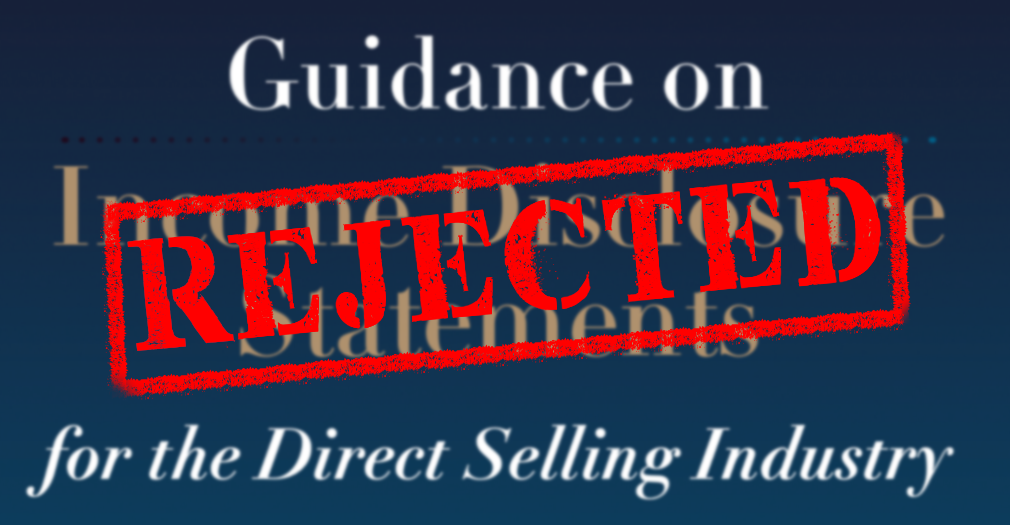
FTC to MLMs: You Lie, You Pay
The agency puts the MLM industry on notice.
Advisory opinion letter raises “serious concerns” with self-reg group’s guidance.
| Bonnie Patten
In the fall of 2023, BBB National Programs’ Direct Selling Self-Regulatory Council (DSSRC), which is the direct selling industry’s self-regulatory program funded by the industry trade group the Direct Selling Association (DSA), issued a nine-page document titled, Guidance on Income Disclosure Statements for the Direct Selling Industry. According to the DSSRC, “an income disclosure statement (IDS) is a document that many direct selling companies publish to disclose the amount of income that direct selling salesforce members can generally expect to earn.” The DSSRC indicates in the Guidance that it is based on the tenets of advertising law that have been articulated by the FTC and the DSSRC, and in the DSA Code of Ethics. But a little over a week ago, FTC staff sent an advisory opinion to the DSSRC saying that it got it wrong – way wrong. The letter begins by expressing “serious concerns” about the Guidance. It continues:
FTC Staff recognize that industry guidance in general can be helpful but, in the current form, we believe the IDS Guidance does much more harm than good…. We are concerned that some of the Guidance either is not fully consistent with federal law or fails to address key concepts of FTC law.
And the letter ends with this warning:
FTC Staff is concerned that the DSSRC’s Guidance will encourage deceptive conduct and facilitate deceptive earnings claims and will result in consumer harm. In our view, an MLM that wishes to follow the FTC Act should not rely on this Guidance.
But according to Peter Marinello, the vice president of the DSSRC to whom the letter was addressed, it’s the FTC staff that got it wrong, stating in response to a TINA.org request for comment on the letter:
While we appreciate the FTC staff’s commitment to consumer protection, we disagree with the FTC staff’s conclusions related to the Guidance. We will address our concerns with the FTC staff.
So what’s an MLM to do? Side with the DSSRC and risk an FTC inquiry or heed the conclusions in the FTC staff advisory opinion letter? If I were a betting person, which I’m not, I’d wager in favor of the FTC staff’s position. Here’s a rundown of some of the issues they have with the DSSRC’s Income Disclosure Guidance.
TINA.org’s recent MLM earnings claims investigation highlighted many of the concerns raised by FTC staff. Our analysis of 60 MLM income disclosure statements revealed that for those companies that provided enough information to calculate overall earnings, more than 80 percent of the companies’ distributors made $1,000 or less for the year (less than $20 a week) before deducting business expenses. For half the companies, on average more than 60 percent of distributors made no money at all. And these statistics are likely inflating the overall success of the typical distributor given the misleading ways in which many MLMs manipulate the earnings data of distributors in their income disclosure statements.
The DSSRC states that its mission, in part, is “[t]o enhance consumer and regulatory confidence … in the direct selling marketplace.” Indeed, the DSSRC was created to both signify and facilitate compliance with the law, but the FTC staff’s recent correspondence with the council makes clear that the DSSRC is not currently succeeding with this part of its mission.
TINA.org also reached out to the DSA for comment on the FTC staff advisory opinion letter. The industry group’s statement can be read here.
The agency puts the MLM industry on notice.
And if you don’t know, now you know.
Why the MLM industry should avoid the term.


